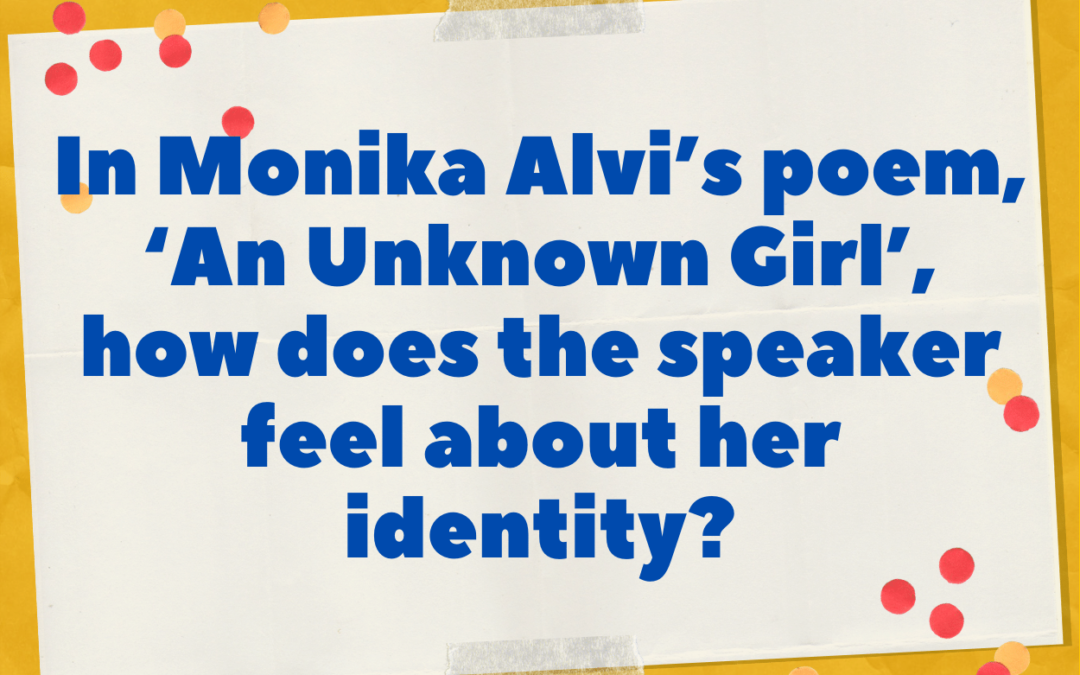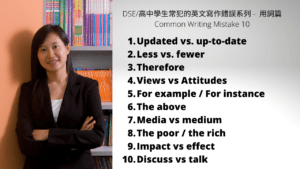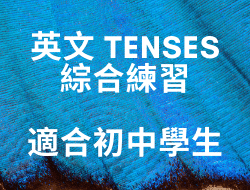Edexcel English IGCSE: An Unknown Girl by Moniza Alvi
Q2. In Monika Alvi’s poem, ‘An Unknown Girl’, how does the speaker feel about her identity?
In your answer, you should write about:
- the speaker’s relationship with India;
- the speaker’s thoughts and feelings while being hennaed;
- the writer’s use of words, phrases and techniques.
You should refer closely to the text to support your answer. You may use brief quotations.
Edexcel English IGCSE Model Essay by an Expert
In ‘An Unknown Girl’, Moniza Alvi expresses the conflicts in identity created by belonging to more than one culture. In this poem, the speaker struggles with her Western and Indian cultures.
The conflicts between Western and Indian culture within the bazaar reflect the conflicts within the speaker’s identity. Whilst words like “bazaar”, “hennaing” and “kameez” capture the Indian authenticity of the scene, there are intruding elements such as “neon” lights, “Western perms” and banners advertising “Miss India”. These Western elements are often accompanied by vocabulary hinting at the speaker’s sense that they do not belong there, such the dummies which “tilt and stare”, as if in accusation. These perceived conflicts, though slight, are symbolic of the speaker’s inner conflict of identity: she is part of both cultures, and feels both at home and out of place in the bazaar.
The henna tattoo symbolises the speaker’s attachment to India and her own Indian identity. This symbolism is most explicitly revealed in her description of the henna as “brown veins”; this metaphor shows that she desires the Indian culture to be an inherent part of her identity, as if it is flowing through her blood. The tenderness she shows towards the henna tattoo, then, reflects her fondness for the Indian part of her identity. For example, she describes it as “soft as a snail trail”: a simile in which the sibilance and internal rhyme create a gentle and tender tone. She describes the henna as having a life of its own: “a peacock spreads its lines across my palm”. This personification of the inanimate tattoo shows that she feels that her Indian identity is alive in her.
However, her attachment to the Indian part of her identity is presented as tenuous. She is desperate to keep hold of her Indian identity. She is “clinging” to the tattoo, and uses a simile referencing Indian culture – “like people who cling to the sides of a train” – to show her knowledge and awareness of the culture, and her need to keep hold of this. There is a sad tone of regret in the line, “It will fade in a week.” This very short sentence on a line of its own reflects the finality of the tattoo’s disappearance; it shows that the speaker is fearful of the Indian elements of her identity fading away when she leaves India. The final image of the poem is the speaker with her “hands outstretched” towards her experience of Indian culture, showing her “longing” for her Indian identity.
The speaker of this poem is struggling with having more than one cultural identity. She loves India, but is aware that this element of her identity fades away once she leaves



